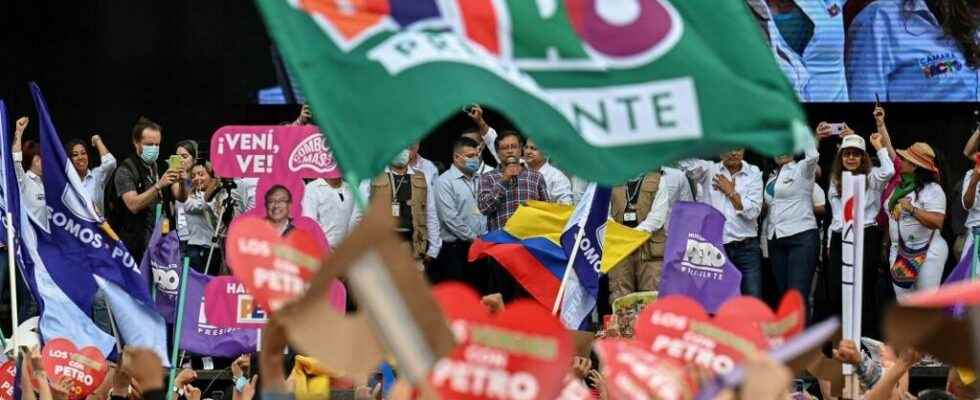This Sunday, March 13 in Colombia, thirty-nine million voters are called to the polls to elect the Congress, Senate and House of Representatives. Voters are also taking part in one of the primaries of the three major coalitions seeking a candidate for the presidential election next May.
From our correspondent in Bogota,
These elections, which are being held six years after the signing of the peace agreement with the FARC guerrillas, are truly the first post-conflict elections. Not that the violence has stopped. On the contrary, massacres and targeted assassinations continue, they are the work of militias and guerrillas who live from drug trafficking. But armed conflict is no longer at the center of political debate, as it has been for forty years. Even thepeace agreement that has so deeply divided Colombians is no longer really an issue.
The second issue, which is somewhat the consequence of the first, is that a candidate from the left Gustavo Petro seems capable of winning the presidential election, in a country which has always been governed on the right. This scenario obviously weighs on the legislative election on Sunday. Gustavo Petro is sure to win the candidacy for the leftist coalition of the Historic Pact but on the other hand, he does not have the slightest chance of winning the majority of Congress.
Abstention, one of the keys to the ballot
Outside the big cities, local politics remains largely dominated by the parties or rather the traditional elites. In some regions, we even speak of political castes, so much the electoral game is dominated by a family. The practice of vote buying is widespread. For 50,000 pesos, or a dozen euros, people in need promise to vote for a specific candidate.
Two days before the election, the big question is that of participation. Traditionally, it is around 50% in legislative elections. But chronic abstainers and young people, who last May were on the street and see in Gustavo Petro a revival of politics, will perhaps vote more than usual. May be.
Economy, insecurity, drugs at the heart of the debates
The economy first, since the pandemic has widened the social gap. The UN has just confirmed it: hunger has increased in Colombia. Inflation is on the rise and worries households and economic operators. Insecurity is also a subject, violence in the rural world and urban insecurity which has progressed and which is making headlines in the local media. One thing, however: while Colombia has received two million Venezuelan migrants in less than six years, the theme of migration is not politically exploited.
► Read also : Colombia decriminalizes abortion up to 24 weeks
The subjects of society weigh, them. Abortion was still a crime 15 days ago except in cases of rape, malformation of the fetus or danger to the health of the mother. He has just been decriminalized by the Constitutional Court until the 24th week of pregnancy. A decision that obviously divides. The question of the legalization of drugs is also present. Colombia is a major producer of marijuana and cocaine. Many on the left and in the center, but also on the right, believe that it is time to rethink drug policy. It is also one of the issues of the ballot on Sunday.
► Read also : Violence in Colombia provokes a sharp increase in forced displacement
